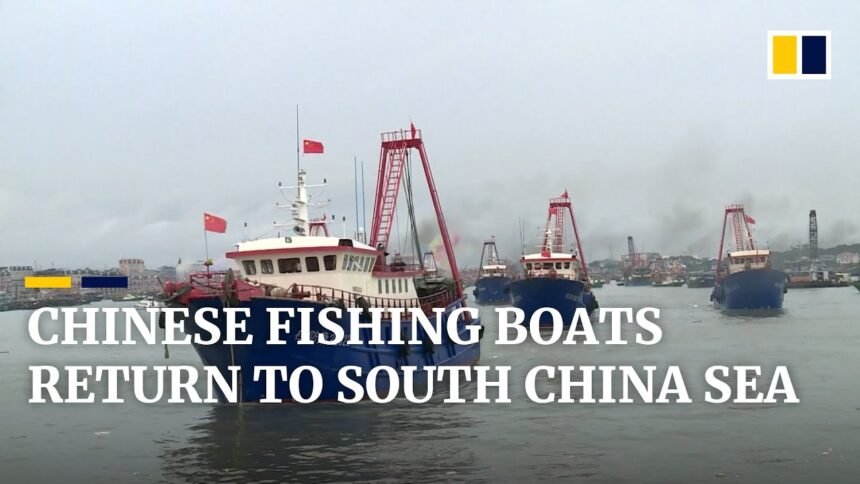In a worrying development for marine environments and global relations, there are reports of Chinese fishing boats reportedly using cyanide to catch fish in disputed waters. This practice not only poses a significant threat to marine life but also exacerbates tensions in regions where territorial disputes are already high.
Cyanide fishing, also known as cyanide poisoning, involves the use of sodium cyanide to stun fish, making them easier to catch. This highly toxic chemical can have devastating effects on marine ecosystems, killing not only the targeted fish but also other marine life in the vicinity. The use of cyanide can lead to the destruction of coral reefs, the loss of biodiversity, and the depletion of fish populations, which can have far-reaching consequences for the health of the oceans and the livelihoods of coastal communities.
The practice of cyanide fishing is not new, but its use by Chinese fishing vessels in contested waters has raised alarm bells among environmentalists and government officials. The South China Sea, in particular, has been a hotspot for territorial disputes between China and its neighboring countries, including the Philippines, Vietnam, and Malaysia. The use of cyanide fishing in these waters further complicates an already volatile situation and can lead to increased tensions and conflict.
In response to these reports, the governments of affected countries have called for an end to cyanide fishing and have pledged to take action against those responsible. The Philippine Coast Guard has conducted patrols in the South China Sea to monitor the activities of Chinese fishing vessels and has seized several vessels found to be engaged in illegal fishing practices. Similarly, Vietnam has also stepped up its efforts to combat cyanide fishing in its waters and has warned that it will take action against any vessels found to be using cyanide.
The use of cyanide fishing by Chinese vessels in contested waters is a clear violation of international law and poses a significant threat to marine ecosystems and regional stability. Governments need to work together to address this issue and ensure that those responsible are held accountable for their actions. Additionally, measures should be put in place to prevent the use of cyanide fishing in the future and to protect the oceans and the marine life that inhabits them.
The practice of cyanide fishing by Chinese ships in disputed waters is a matter of concern and necessitates immediate attention. This practice not only poses a significant threat to marine ecosystems but also exacerbates tensions in regions where territorial disputes are already high. Governments need to work together to address this issue and to protect the oceans and the marine life that depend on them.









